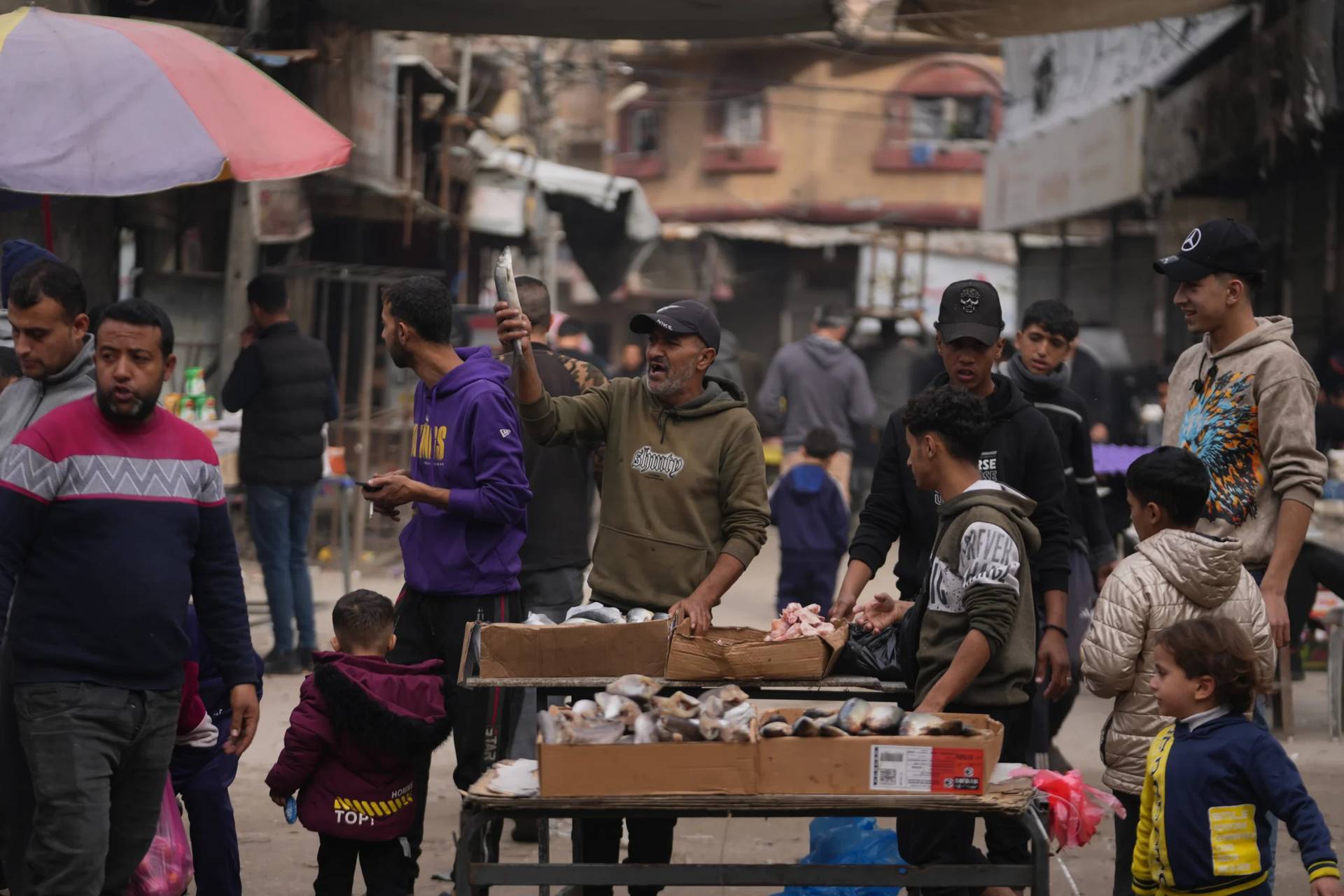ROME — Pope Francis has appealed for a committed fight against modern slavery, asking youth in particular to play an active role against a booming illegal industry of trafficking in human beings.
“Collaborating with this cause is not enough for a Christian,” the pope said in remarks to a Rome symposium. “We’re called to commit to the cause,” he said, even if this means risking one’s life.
Addressing more than 100 leaders on Sunday at the closing of a “Young people against prostitution and human trafficking” symposium, the pontiff encouraged youth to set an example in the fight against an industry which, according to Global Slavery Index, affects more than 30 million people worldwide and generates $32 billion in annual revenue.
The pope’s speech was short and improvised. He spoke for less than five minutes, arriving almost two hours ahead of schedule and staying for almost an hour. Each one of the participants, many of them survivors of human trafficking or relatives of rescued victims, had the opportunity to greet the pope and to share, even if briefly, their experience.
The symposium was organized by the Pontifical Academy for Science, an Argentinian organization called Vínculos en Red (which translates roughly to “personal bonds network”), and the interreligious anti-trafficking foundation “Global Freedom Network” launched earlier in the year by Pope Francis along with the Grand Imam of Al-Azhar, Mohamed Ahmed el-Tayeb; the Anglican Archbishop of Canterbury, Justin Welby, and Australian philanthropist and mining magnate Andrew Forrest.
Argentinian Bishop Marcelo Sánchez Sorondo, head of the Pontifical Academy for Science, told Crux that “we are all equals as human beings; this means that any relationship of subordination is inexplicable and should be condemned as a crime against humanity.”
Among the participants in the conference was Patrick Gage, a fourth generation member of the Curtis L. Carlson family that owns the Radisson Hotels, the Park Plaza, and the Country Inns and Suites hotel chains.
Gage said he believes the corporate sector can play a key role in abolishing slavery. A sophomore in Georgetown University, Gage also sees Francis’ commitment to tackle the issue as instrumental.
“We need governments, as many big names and organizations as we can so people start to recognize this isn’t something that just a couple of activists on the side should be fighting against,” he said.
Gage believes this commitment is crucial, in part because it’s inspirational for those fighting against modern slavery from the front lines as well as for the victims.
“It lets them know that we heard them and we’re fighting to free them,” he said.
When asked about the role those under 25 can play in the fight against human trafficking, the 19-year-old Gage encouraged his generation to participate, taking into account that “we’re the ones who’ll inherit the world.”
“It’ll be our society,” he said, “and now is the time to decide what kind of society we want to live in. Now is the time to cultivate the excitement to live in a slave-free world.”
The fight against human trafficking has been a key priority for Pope Francis, but it’s nothing new for the Argentine prelate.
As archbishop of Buenos Aires, then-Cardinal Jorge Mario Bergoglio sponsored various local organizations, like “La Alameda,” that rescue people from trafficking networks.
These organizations would feed him information about slave labor in Argentina’s clandestine sewing shops and also human trafficking for prostitution. The future pope, in turn, would find work and asylum for the survivors.
During a Mass held in a Buenos Aires train station in 2012, he compared the city to a “butcher shop” that takes away the human dignity of people trapped by these networks. He also denounced the local police department and the legal system for accepting bribes from traffickers, saying that “without them, these mafias wouldn’t exist.”
Beyond a warm welcoming, the youth at the symposium offered Pope Francis an international declaration that says that human beings aren’t objects to be commercialized. They also requested more help from governments to fight this crime, and suggested the creation of an international observatory to prevent the objectification and violence against women present in mass media.














